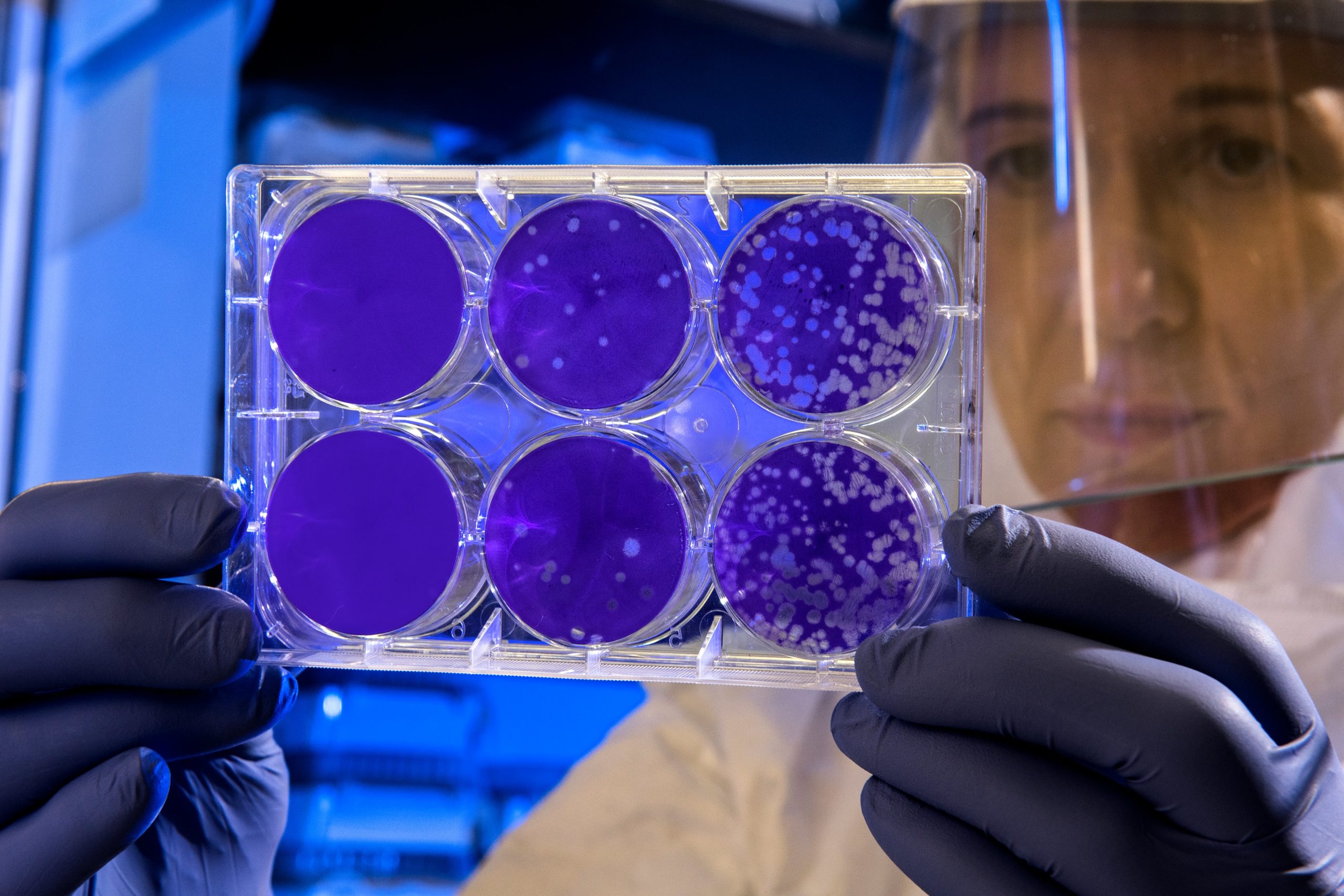New Data Demonstrates VisionGate’s LuCED® Test Able to Detect Early Cancer
High Sensitivity and Specificity Data to be Presented at ASC 2014
PHOENIX, Ariz. – November 13, 2014 – VisionGate Inc., a new generation biotech company that is developing a revolutionary, non-invasive test for the early detection of lung cancer and other applications, announced that positive results from a clinical study of its LuCED lung test will be highlighted in a podium presentation (Abstract #111512) during the American Society of Cytopathology (ASC) 2014 Annual Meeting in Dallas on November 16 at 10:45 a.m., session number PP08. The study further demonstrates the LuCED lung test’s ability to detect all stages of cancer – including from small nodules associated with early-stage cancer – with exceedingly high sensitivity and specificity.
“The Cell-CT imaging of cells in 3D has the ability to change the way we detect early disease,” said Dr. David Wilbur, Pathologist and Director of Clinical Imaging at Massachusetts General Hospital and Professor of Pathology at Harvard Medical School. “And in the case of VisionGate’s non-invasive LuCED test for lung cancer, has the promise to become a cost-effective screening tool for the early detection of lung cancer.”
For the study, investigators used VisionGate’s LuCED test with the Cell-CT® cell imaging system to analyze non-invasive sputum samples from patients with biopsy-confirmed, non-small cell lung cancer (NSCLC) and small cell lung cancer (SCLC). The results show that VisionGate’s Cell-CT accurately detected lung cancer cells in three-day pooled, spontaneously produced sputum.
In the 47 cases studied, 40 were NSCLC, six were SCLC and one undefined. Moderate/severe dysplasia or cancer cells were found in 44 of the 47 cases. Eighteen of these cases were either Stage I or Stage II lung cancer with 94.1% sensitivity to early stage lung cancer.
Importantly, among 122,005 sputum cells from 47 normal patients at high risk for lung cancer, the Cell-CT classified 0.5% as false positive and requiring human review. Pathologists resolved these potentially positive cells as negative to achieve essentially 100% case specificity.
Today, lung cancer is by far the leading cause of cancer death among both men and women, and more people die of lung cancer than of colon, breast, and prostate cancers combined.
“Our breakthrough technology platform, the Cell-CT, continues to demonstrate exquisite sensitivity to rare cancer cells in sputum with exceptionally low false positives, making this the first viable non-invasive, nonradiation test for lung cancer,” VisionGate Founder and Chief Executive Officer Alan C. Nelson, PhD said. “We’re encouraged by this recent data as it illustrates the power of LuCED to detect small nodules – indicative of catching lung cancer at a time when treatment is most effective.”
VisonGate’s LuCED test incorporates its Cell-CT automated system, which harnesses the power of cuttingedge optics and computational technology. It has the capability to capture images very rapidly, rendering scanned objects into 3D digital images. For this particular study, the Cell-CT platform produces clear, detailed, 3D images of cells in sputum, which the system automatically analyzes to identify key features, or biosignatures, associated with potential malignancy. The analysis yields a high score when cancer cells are present.
VisionGate is in the final phases of its Clinical Laboratory Improvement Amendments (CLIA) certification and plans to open a best-in-class clinical services laboratory in early 2015 in Phoenix, Arizona. One of the state’s most supported ventures, it was awarded the Arizona Governor’s Celebration of Innovation Award for Innovator of the Year – Start-Up Company in 2011.
About VisionGate
VisionGate, Inc. is led by Dr. Alan Nelson, physicist, bioengineer and entrepreneur who developed the world’s first and only automated screening test to detect cervical cancer, marketed today as FocalPoint by Becton Dickinson. VisionGate offers the first automated 3D cell imaging platform, the Cell-CT, which computes high-resolution 3D biosignatures from intact cells. The company’s first implementation of the CellCT is the LuCED test, initially being developed as a CLIA lab developed test (LDT) for adjunctive use with low dose x-ray computed tomography (LDCT) screening for the early detection of lung cancer in high-risk individuals. Adjunctive use of LuCED to better manage the high rate of false positive results in CT screening could increase the utility and cost effectiveness of the approach, which has been shown to decrease lung cancer deaths in high-risk patients. VisionGate is headquartered in Phoenix, Arizona, and has a research and development office in Seattle, Washington. It currently holds 112 issued patents. For more information about VisionGate, visit www.visiongate3d.com.
About Lung Cancer
According to the American Cancer Society, lung cancer is by far the leading cause of cancer death among both men and women. Lung cancer (both small cell and non-small cell) is the second most common cancer in both men and women (not counting skin cancer). In men, prostate cancer is more common, while in women breast cancer is more common. The American Cancer Society estimates that in 2014 in the United States about 224,210 new cases of lung cancer (116,000 in men and 108,210 in women) will be diagnosed, and an estimated 159,260 people will die from lung cancer (86,930 in men and 72,330 among women), accounting for about 27% of all cancer deaths. Each year, more people die of lung cancer than of colon, breast, and prostate cancers combined.



